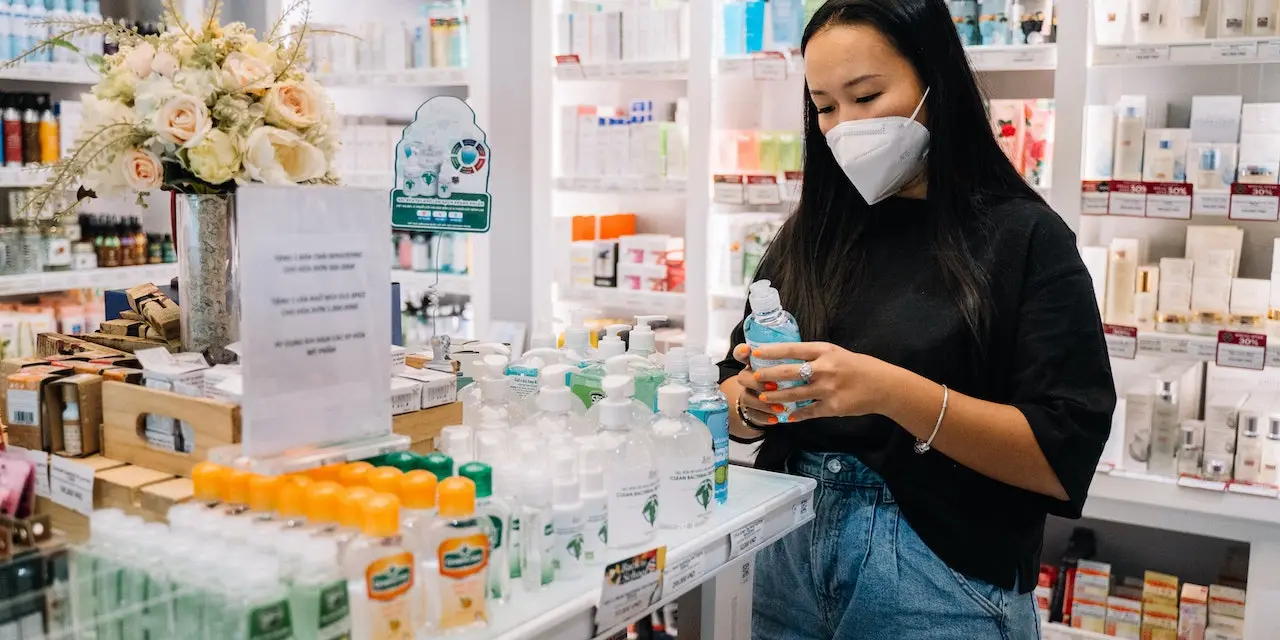
Since being on the front lines of the COVID-19 response and administering more than half of the COVID-19 vaccinations in the United States, the role of community pharmacists has expanded. Whereas previously a pharmacist’s role may have primarily included administering and dispensing prescriptions, today a pharmacist could be administering one of several vaccines, offering diagnostic and point-of-care testing, and providing medication management counseling to patients, all while still filling prescription orders.
While the number of responsibilities and demands on pharmacists has increased over the years, the number of hours in the day have not. Pharmacies provide critical healthcare services and are essential to their communities, but burnout may be a fact for many pharmacists. A 2019 workforce study found that 71% of practicing pharmacists reported workload as high or excessively high, and studies since then have found that burnout has increased, with some finding 35.9% of pharmacists had an increased workload and 52.2% worked overtime.
“Pharmacies have stepped up for their communities by working extra hours, running vaccine clinics and so much more,” says Brad Cochran, executive vice president of retail distribution at Cardinal Health and president of Medicine Shoppe International Inc. (MSI). “When pharmacists took on those additional responsibilities, which may have included a lean staff and limited resources, it fueled the burnout fire.”
Nationwide labor shortages also continue to impact pharmacies, with some cutting back their hours and closing stores. A survey conducted earlier this year found that pharmacy technicians continue to be in high demand (80%), followed by clerks/front-end staff (43%), pharmacists (19%) and delivery drivers (17%). Sixty-seven percent overall report having a difficult time filling open staff positions.
While it may be difficult for pharmacists to sustain an expanding workload and normal business operations without the necessary resources, it does present an opportunity for pharmacies to rethink the way they operate. One way Cardinal Health and MSI are helping pharmacies do this is by offering solutions that can help them save valuable time and optimize their resources.
“We know the critical role pharmacists have in their communities to improve healthcare outcomes, and we recognize the challenges they are facing,” says Cochran. “Part of a pharmacy’s evolution will be adjusting some of its processes or incorporating new tools and resources to overcome obstacles and remain competitive.”
One way that pharmacists can keep up with increased demands on their pharmacies is by simplifying prescription fulfillment with the Cardinal Health NavixRxTM Compliance Packaging solution.
Evolution will mean adopting novel tools
NavixRx Compliance Packaging provides pharmacies with a personalized, scalable and affordable option to outsource costly and time-consuming prescription fulfillment for customers taking two or more medications. Utilizing a central-fill model, prescription medications and over-the-counter supplements are dispensed into a 30-day supply of daily strip packs and delivered through the pharmacy direct to the patient. Integrating with the pharmacy management system, NavixRx Compliance Packaging provides a consistent and safe way to support medication adherence.
As more older patients choose to age in place at home, using compliance packaging also presents an opportunity for pharmacists to own the patient relationship by supporting both caregivers and the patients they are caring for in the home.
“What makes pharmacists so valuable to their communities is the personal interactions they have with their patients,” says Cochran. “With the NavixRx Compliance Packaging solution, we’re taking the responsibility of prescription fulfillment off pharmacists’ plates so they can spend more time focusing on their patients.”
Pharmacies are cornerstones in their communities, and while people value the personalized care they receive from their community pharmacist, they also want the convenience of on-demand services like online shopping and home delivery. Working with Square and Pharmacy Management Systems, Cardinal Health offers pharmacies innovative payment processing options that allow them to evolve with changing customer needs and streamline their operational workflows for greater efficiency.
Cardinal Health’s Modern Payments Processing solution allows pharmacies to accept payments for in-store, online and delivery purchases. The solution also offers pharmacies access to easy-to-use analytics, dashboards, and tools and software to power all elements of their business.
“The Modern Payments Processing solution allows pharmacies to focus on their patients’ needs instead of being bogged down with administrative tasks,” says Cochran. “The solution takes the pressure off pharmacies to ensure payments are compliant with current regulations, while also reducing processing costs and having access to a robust back-end system that details how the business is doing,” said Cochran.
As the need for skilled pharmacy technicians to help pharmacists continues to grow, there is a need for tools to help pharmacies automate their workflows and drive efficiencies.
The OutcomesTM business offers a suite of multichannel solutions for managing clinical services and connecting pharmacists to payers, pharmaceutical manufacturers and patients to optimize productivity and enhance patient outcomes. Through the OutcomesOneTM platform, pharmacies have access to a unified pharmacy management system that eliminates the need for accessing multiple platforms and optimizes workload for pharmacy staff.
Additional solutions in the OutcomesOne Premium platform allow pharmacies to choose add-ons to elevate their operational efficiency, including tools for texting, telepharmacy, scheduling and financial insights into the pharmacy. These tools are designed to create a streamlined, efficient workflow for pharmacies, allowing them to focus on patient engagement and clinical care.
Cardinal Health’s Medical Benefit Billing solution also enables pharmacies to bill, track and reconcile their medical benefit claims in real-time. It is integrated with Cardinal Health’s Central Pay and Reconciliation Portal, providing pharmacists with a consolidated view of their pharmacy and medical benefit claims.
“The role of community pharmacists has expanded to include more patient-facing responsibilities, and that’s only going to continue,” says Cochran. “When a pharmacy can utilize tools to streamline essential daily duties and increase their efficiency, they’ll have more time to focus on their patients.”
Pharmacies provide critical healthcare services to their communities, and they are positioned well to enable care. Cardinal Health and MSI will continue to deliver innovative solutions to help pharmacies run more efficiently and profitably so they can thrive in the future.
For more than 50 years, MSI has provided pharmacists a path to ownership that offers a strong national brand, expert pharmacy franchise consultants and a complete operating model so they can make a difference in their communities.




